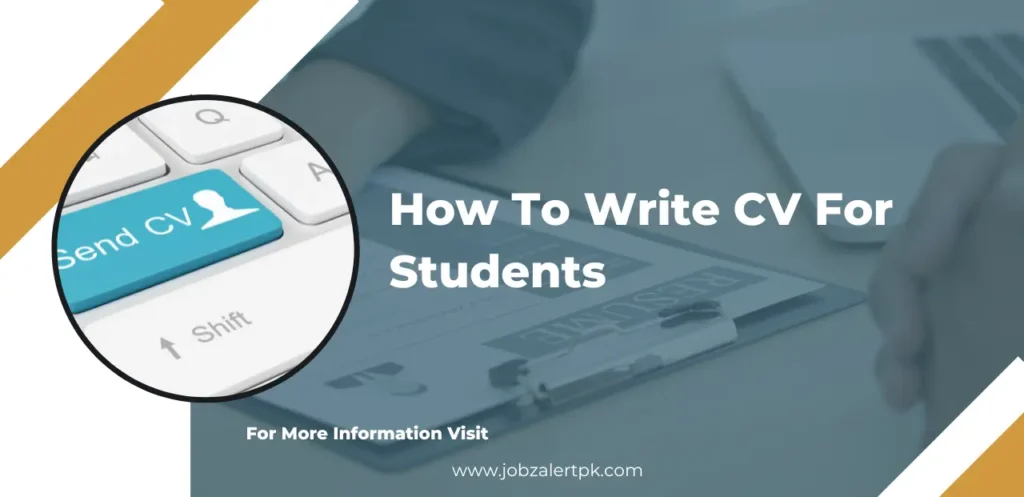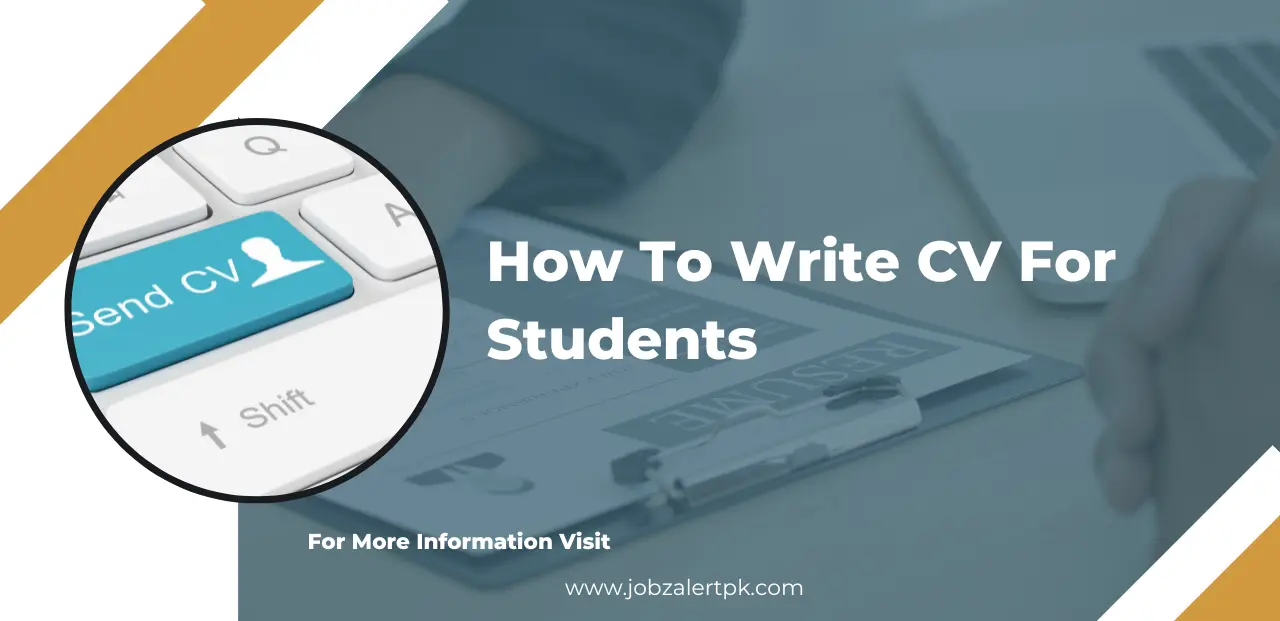Writing a CV (Curriculum Vitae) can be tricky, especially when you’re a student with little or no work experience. But don’t worry! Your CV is all about showcasing your skills, education, and any relevant experiences that can help you land your first job, internship, or scholarship. Here’s a simple guide to help you write a standout CV.How To Write CV For Students
1. What is a CV and Why Do You Need It?
A CV is a document that shows who you are, what you have learned, and what skills you have developed. It’s like your personal advertisement to potential employers, professors, or scholarship committees. When you’re a student, it helps you present your education, skills, and any work experience in a clear and professional way.
For Free Resume Builder
2. Key Sections to Include in Your CV
| Section | Description |
|---|---|
| Personal Information | Your name, phone number, email, and LinkedIn profile (if available). |
| Objective Statement | A short paragraph about your goals and why you’re applying. |
| Education | Include details of your current studies or recent qualifications. |
| Skills | List the skills you have developed, both hard (technical) and soft (personal). |
| Work Experience | If applicable, mention any part-time jobs, internships, or volunteer work. |
| Achievements & Awards | Any special accomplishments, honors, or awards. |
| Extracurricular Activities | Mention clubs, sports, or other activities you participate in. |

Personal Information
This section should include your:
- Full name
- Phone number
- Email address
- LinkedIn profile (if you have one)
Keep it short and professional.
Objective Statement
The objective statement is a short paragraph at the beginning of your CV. Here, you can briefly mention your career goals and why you’re applying for a job or internship. It helps employers understand your purpose and motivation.
Example:
“I am a motivated business student looking for an internship to apply my skills in marketing and learn from industry experts.”
Education
List your most recent education first, including:
- The name of the school or university
- The degree or course you’re studying
- Your expected graduation date or the year you finished
Example:
Bachelor of Arts in Business Administration
XYZ University, Graduating: 2026
Skills
In this section, highlight both hard and soft skills. Hard skills are technical abilities (like computer skills), while soft skills are personal traits (like communication or teamwork).
Examples:
- Microsoft Office (Word, Excel, PowerPoint)
- Time management
- Problem-solving
- Teamwork and collaboration
Work Experience (If Any)
Even if you don’t have formal work experience, include any part-time jobs, internships, volunteer work, or any responsibilities you’ve had in school or extracurricular activities. Focus on the skills and responsibilities you gained.
Example: Intern
ABC Marketing Company, Summer 2023
- Assisted in social media content creation
- Managed customer emails and inquiries
Achievements and Awards
Here, you can list any special awards, scholarships, or academic achievements. It helps show what you’ve accomplished so far.
Example:
- Winner of the XYZ University Science Fair 2023
- Dean’s List, Fall 2023
Extracurricular Activities
Including extracurricular activities shows you’re active and involved in your community. It could be anything from sports to student clubs or volunteer work.
Example:
President, Student Debate Club
XYZ University, 2022-Present
- Organized weekly debates and workshops
- Represented the university at national competitions
3. Tailor Your CV for the Job
When applying for a job or internship, always customize your CV to match the specific position. Highlight the skills and experiences that are most relevant to the job. For example, if you’re applying for a marketing internship, emphasize your communication skills, creativity, and any related coursework or projects.
4. Formatting Tips
Make sure your CV is clean, easy to read, and professional. Here are a few formatting tips:
- Keep it to 1-2 pages.
- Use a simple, professional font like Arial or Calibri.
- Use bullet points for clarity.
- Avoid including unnecessary information, such as your age or marital status.
5. Common Mistakes to Avoid
- Don’t include irrelevant personal information (like your hobbies unless they relate to the job).
- Don’t exaggerate your skills or achievements. Always be honest.
- Proofread your CV to ensure there are no spelling or grammar mistakes.
6. Conclusion
Writing a CV as a student doesn’t have to be complicated. By following these simple steps, you can create a CV that showcases your education, skills, and experiences in a professional way. Remember to update your CV regularly as you gain more experience, and always tailor it to the role you’re applying for. Good luck!
Also Read About Who should We use a resume vs a CV
FAQs
What should I avoid including in my CV?
Avoid including personal information such as your age, marital status, or religion. Don’t list every job or activity you’ve ever done – only include what’s most relevant to the job you’re applying for. Also, avoid using unprofessional email addresses (e.g., partyboy123@gmail.com).
Should I include references in my CV?
It’s optional to include references on your CV. If you choose to, list two or three people (such as a professor, supervisor, or volunteer leader) who can speak to your character and skills. Make sure to ask for their permission before listing them.
How should I format my CV?
Keep the layout clean and easy to read. Use a professional font (e.g., Arial or Calibri) and keep your font size between 10-12 points. Use bullet points to list your skills and experience, and make sure there’s enough white space to avoid clutter. Sections should be clearly labeled with bold headings.
